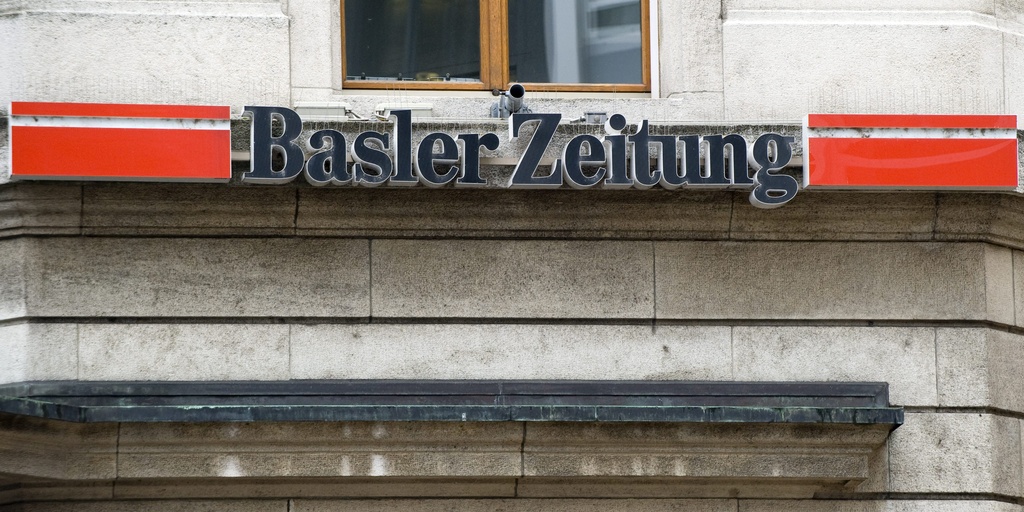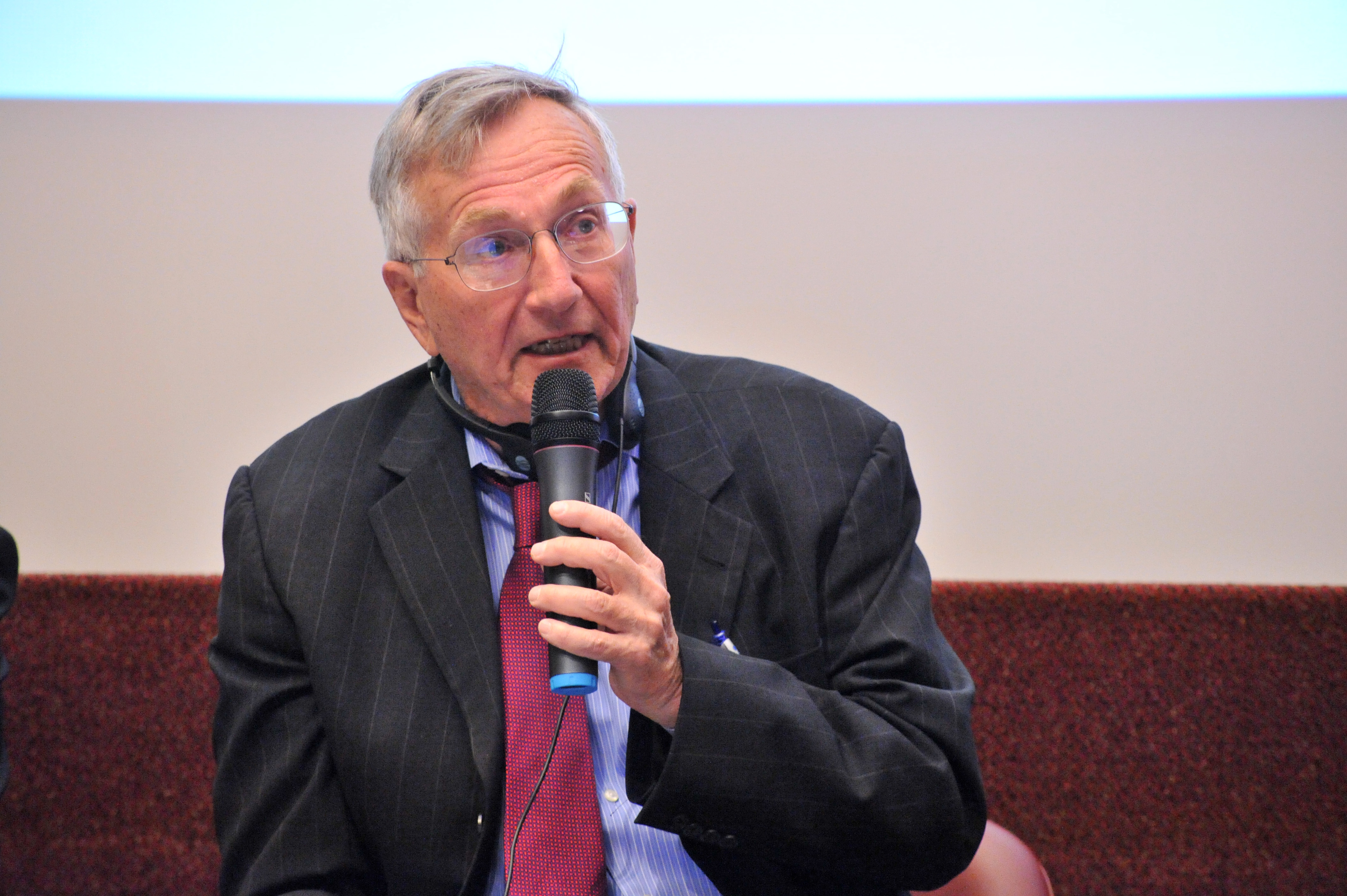Financial problems constrain media freedom

A readers' revolt to save Basel's local paper from a rightwing takeover has highlighted the conflict between editorial independence and the need for sound financing.
A conference at Fribourg University discussed the issue of state and the media against the background of falling reader numbers for the print media in general, and the public’s increasing unwillingness to pay for news.
It was announced last week that Moritz Suter, the founder of the now defunct Crossair airline, had bought the Basler Zeitung from its joint owners. One of these owners, Tito Tettamanti, is seen as being closely associated with Christoph Blocher, the strategist of the rightwing Swiss People’s Party.
Matters had come to a crunch after the announcement that the owners had mandated a consultancy run by Blocher to look into the paper’s financial situation.
The journalists had made clear their concern that the paper would no longer reflect all shades of opinion, and many readers cancelled their subscriptions in protest.
But it is not clear whether Suter has any partners providing the necessary financial backing. And while he has let it be known that he attaches great importance to “the independence of the paper’s editorial line”, its future is still a matter of speculation.
In announcing his takeover, he warned that the paper was in dire financial straits and that cuts would have to be made.
“Alarming mixture”
“Editorial independence is always safest when business is going well,” freelance journalist and commentator Karl Lüönd told swissinfo.ch at the conference.
“When things are going badly, as is the case today with most newspaper publishers, we see they are more willing to compromise.”
He pointed to the “alarming mixture of editorial and commercial content in the form of advertorials, sponsored reports, and inserts prepared by third parties” that now fill many newspapers.
Publishers today want to find areas that can lengthen their “value chain” – the chain of different activities that add value to the organisation’s output – and thus use their “editorial power for their own commercial ends”.
Lüönd cited the case of the German weekly Die Zeit, which also sells wine, on the principle that “if wine merchants no longer place advertisements, we’ll take over their business”.
Lüönd pointed to the Ringier-Verlag, whose CEO recently said that Ringier was not a news concern, but an entertainment one. It owns event agencies as well as a concert promotor and sports marketer.
Editorial quality?
Rainer Stadler, media specialist with the Neue Zürcher Zeitung (NZZ), told the conference that a business model where the media make money from non-journalistic areas had the advantage that profits can be used to finance editorial content.
He did not share Lüönd’s concern about mixing editorial and commercial content.
“I see this not so much as a political danger as an economic one,” he said. “It could drive competitors to the wall.”
Nevertheless, many journalists are aware of the economic pressure.
A poll of about 2,200 journalists in Germany, Austria, Slovenia and Switzerland conducted in 2010 shows that just under half of them were “totally” convinced that journalistic quality is suffering severely under economic pressure. Only five out of every hundred of those asked saw little or no connection.
Stealthy takeover
Lüönd is worried about another development too. “Editorial departments are being downsized, thinned out and brutally pared down to make savings. And on the other side the entire communications and similar industries, like public and investor relations, are being upgraded as never before.”
Today it is not only major companies that are have their own information apparatus, but associations, institutions, charities and the authorities, he pointed out.
“The fewer resources editorial departments have to evaluate and filter this input critically, the more willing they are to pass on the convenience products from the PR kitchen more or less unchecked,” he warned.
Research has shown that between 60 and 80 per cent of editorial content is influenced and steered by interest groups, if it is not actually supervised by them.
“That is what is dangerous, and it is something that journalists are insufficiently aware of.”
Lüönd is also worried about a brain drain of well-known journalists who are increasingly taking jobs in PR agencies or elsewhere.
A recent example is Gerhard Schwarz, who for many years was the head of the economic section of the NZZ and the paper’s deputy editor. After 30 years he has left the paper to become director of the Swiss think tank Avenir Suisse. He once said he saw no future for motivated journalism.
“Without sufficient resources journalism becomes toothless and unable to function,” Lüönd declared.
The free daily 20 Minutes is the newspaper with the biggest circulation in Switzerland (494,368 copies), even though its circulation dropped by 7.9% during this year, according to figures for the end of September published by media research agency Wemf.
In French-speaking regions, the French version of 20 Minutes circulation fell 9.9% to 207,112 copies. Its main free competitor Le Matin Bleu closed down in September 2009.
In German-speaking regions, most paid newspapers have been forced to make cutbacks, apart from the tabloid Blick where circulation rose by 0.2% to 214,880 copies.
Tamedia’s Berner Zeitung suffered a massive decline. Its circulation fell by 9.2% to 181,705 copies. Circulation of the company’s other main newspaper, the Bern-based Der Bund, also fell by 2.9% to 51,183 copies.
Its flagship newspaper, Tages-Anzeiger, also lost further ground. Last year the Zurich-based paper sold 203,636 copies (-2.7%). There was a similar fate for the Neue Zürcher Zeitung, which lost 2% with a circulation of 136,894.
(Adapted from German by Julia Slater)

In compliance with the JTI standards
More: SWI swissinfo.ch certified by the Journalism Trust Initiative





You can find an overview of ongoing debates with our journalists here. Please join us!
If you want to start a conversation about a topic raised in this article or want to report factual errors, email us at english@swissinfo.ch.